On 28 November 2018, the seminar on strategy and policy of marine main functional zone was held in the CIBOS teaching building(BianHai Building) in Wuhan University. This seminar was held by Wuhan University China Institute of Boundary and Ocean Studies(CIBOS,WHU) and the Collaborative Innovation Center for Territorial Sovereignty and Maritime Rights(CICTSMR), more than 20 experts and scholars from Hainan University(HNU), China Institute for Main Function Zone Strategy, Wuhan University(CIMFAS),Wuhan University Institute for International Studies(IIS,WHU) and the editorial department of Journal of Boundary and Ocean Studies were invited to attend this seminar.
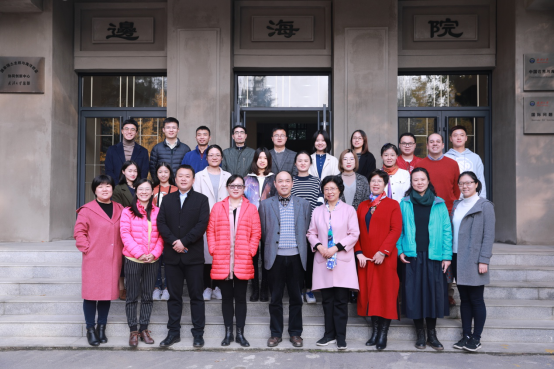
Prof. YU MinYou, the dean of CIBOS and HE Lian, the executive vice dean of CIMFAS gave welcome speech on the opening ceremony. Prof. YU MinYou pointed out that in 2015, the State Council issued the "The National Maritime Main Functional Zone Plan", which provided a strategic basis for strengthening the research of marine policy, accelerating the construction of a maritime power, optimizing the development pattern of land and space, and protecting the marine ecological environment. The implementation of the maritime main functional zone planning is an urgent need to develop marine space and adjust the economic layout. Also it's an urgent need to promote the constructions of marine ecological civilization and enhance the sustainable development of the ocean. What's more, it's an important topic for the "Belt and Road" maritime international cooperation in the new era.
Vice dean HE believes that China's main function zone strategy and system are important reform measures for China to implement effective control and rational development and utilization of land and space planning. The plan for the marine function zone was put forward in 2015, it is an effective promotion of the country in order to optimize the spatial structure of national land space, promote land and sea co-ordination as a whole, and further prevent the situation of overlap in the field of water management. CIMFAS, CIBOS and CICTSMR working closely together on the main functional zone is the collision and integration of liberal arts and science, natural sciences and social sciences. This cooperation will continue to implement national strategies and policies, to promote the construction of the ecological civilization in China with practical actions.
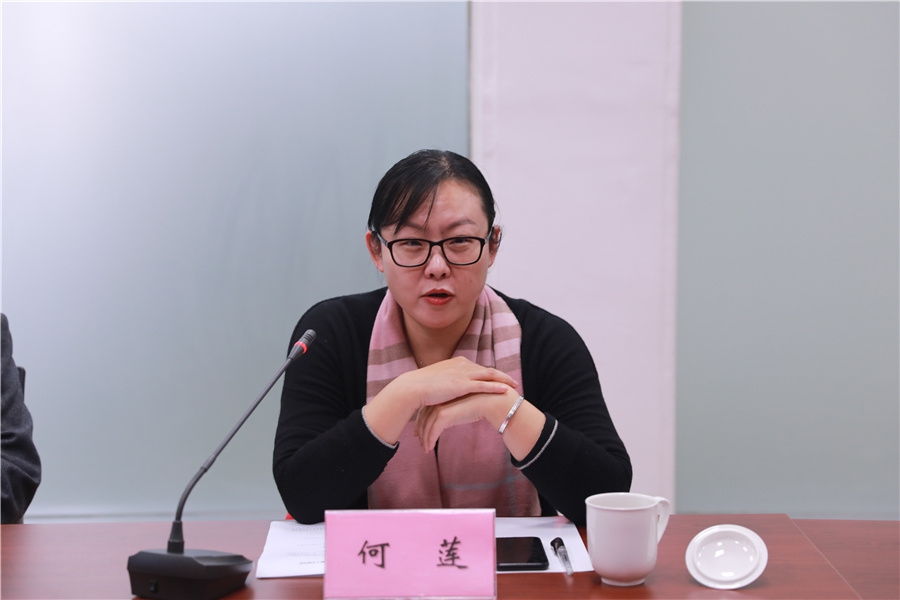
(HE Lian, the executive vice dean of CIMFAS)
The seminar was held in the form of an academic forum. The guests combined the theory and practice, discussed the theoretical basic research and supporting policy research of the Maritime Main Functional Zone planning, and proposed a series of valuable countermeasures. The main content is now organized as follows to readers.
Part Ⅰ: Frontier issues of Maritime Main Functional Zone planning theory
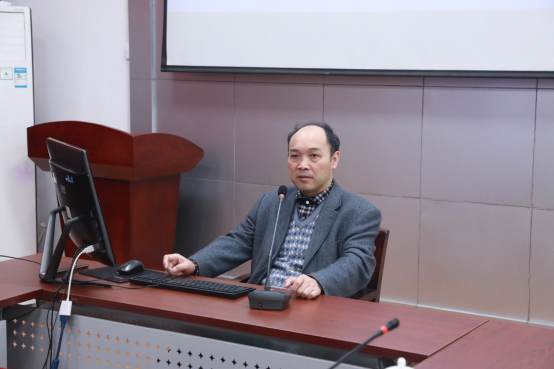
Prof.YU MinYou, CIBOS
Speech topic: Maritime Main Functional Zone and the optimization the development pattern of marine space. Firstly Prof. YU MinYou emphasized that the current continuous growth of China's marine economy and the deepening of the structural adjustment of the marine economy are important backgrounds for the strategic layout of the Maritime Main Functional Zone. Prof.YU believes that the strategic pattern of constructing the Maritime Main Functional Zone is in line with the international trend. China needs to construct a general strategy and main functional strategy for the development of marine areas with Chinese characteristics, which are harmony between man and nature, complementary regional economic advantages, clear positioning of main functions, and efficient use of space. Then, Prof.YU elaborated on the content of the Maritime Main Functional Zone strategy. Finally, Prof.YU pointed out that in order to realize the optimization of the marine spatial pattern under the guidance of the Maritime Main Functional Zone strategy, it is necessary to meet the four conditions of scientific and rational, land-sea balance, pattern balance and functional prominence.
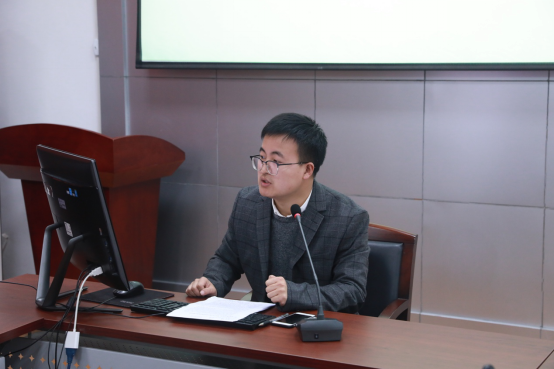
Lecture XUE ZhiHua, CIBOS
Speech topic: Theoretical basis and control mechanism of the Maritime Main Functional Zone. Lecture XUE firstly introduced the research background of the Maritime Main Functional Zone. Maritime Main Functional Zone is the basic and binding planning for the development of marine space, and it is the basic basis for promoting the formation of the layout of the Maritime Main Functional Zone. Studying the theoretical basis and control mechanism of the Maritime Main Functional Zone is of great significance for accelerating the implementation of the strategy of strengthening the country by the sea, expanding the opening up, promoting the construction of ecological civilization, promoting sustained and healthy economic development, and realizing the China Dream——the Chinese nation's great rejuvenation. Secondly, based on the overall layout of "five integrations" and the ideological origin and flow of the Maritime Main Functional Zone, he put forward the comprehensive ocean planning theory of five integrations of economy, politics, society, culture and ecosystem to construct the theoretical basis of the Maritime Main Functional Zone planning. Finally, he puts forward the problems existing in the current control mechanism of the Maritime Main Functional Zone planning: The integration of multiple plans is progressing slowly; Lack of a unified standard system; Institutions and mechanisms need to be improved; the lack of dynamic assessment and optimization adjustment mechanism and he proposed the following countermeasures and suggestions: Improve legal and regulatory support and supporting policies; speed up standard setting; improve supervision and evaluation mechanism and build a dynamic evaluation system.
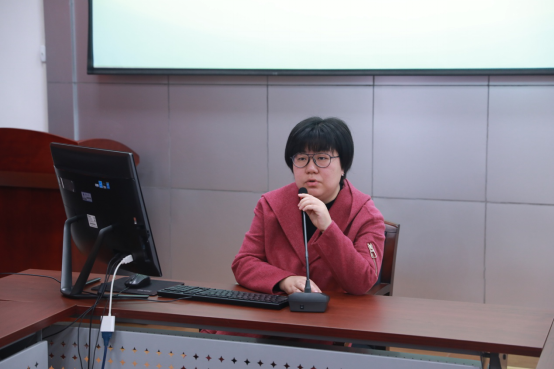
Associate Professor JIANG XiaoYi, CIBOS
Speech topic: Some thoughts on the program elements of the establishment of High seas protection zone. Firstly, instructor JIANG introduced the background of marine protected areas all over the world. At present, marine protected areas are regarded as one of the most effective management tools for zoning. Secondly, instructor JIANG further pointed out the three major development trends of marine protected areas: First, from small to large scale; secondly, the networking trend ;third, the trend of internationalization from the scope of national jurisdiction to the scope of national jurisdiction. Finally, instructor JIANG made the following recommendations for the establishment of a high seas protected area in the future: First, the program of the establishment of High seas protection zone must be goal-oriented. Second, in terms of overall procedures, the most appropriate is the global model. Third, focus on overall framework construction. Forth, in the selection procedure, attention should be paid to the area identification and designation procedure consultation and evaluation decision procedure.
Part Ⅱ. The Practical Problem of the Policy of the Maritime Main Functional Zone
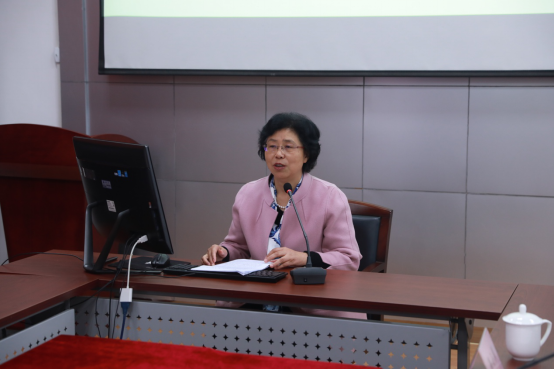
Prof. LI RenZhen, CIBOS
Speech topic: Marine space planning and the maritime cooperation of the "Belt and Road". Prof.LI RenZhen introduced the major achievements of China's marine spatial planning, indicated that the Chinese Government's Promote the construction of the Silk Road Economic Belt and the vision and action of the maritime Silk Road in twenty-first Century; the plan of "Belt and Road" building maritime cooperation; China's National Plan on Implementation of the 2030 Agenda for Sustainable Development; The “Nanhai and its Surrounding Oceans International Cooperation Framework Programme (2016-2020)” and other documents all expressed the policy vision for international cooperation in marine spatial planning. The Cambodian Ocean Space Planning Project, theiIsland protection planning project of Koh Lan,Thailandt, the 2018 Bangladesh Ocean Space Planning Overseas Technical Training Course and the Maritime Silk Road and the International Forum of Islands National Ocean Space Planning are the successful paradigms for the cooperation between Chinese and foreign marine spatial planning. Regarding the promotion of international cooperation in marine spatial planning, Prof. LI RenZhen made the following three suggestions: First of all, a blue partnership with the “Belt and Road” construction must be build. Secondly, the marine spatial planning project should be used as a starting point to deepen the expansion of marine cooperation with coastal countries. Finally, the “Chinese Standard” for sea area planning as a carrier should be used to deeply involved in global ocean governance.
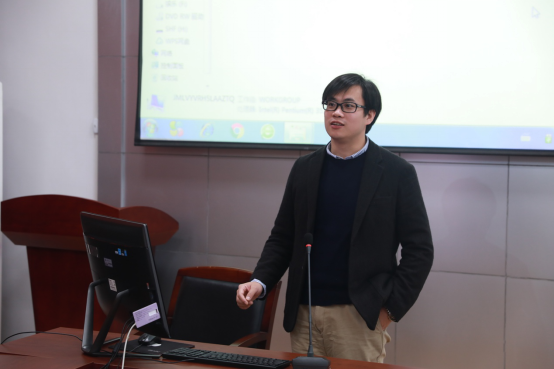
Lecture TAN XiuJie, IIS
Speech topic: Current Situation, Problems and Countermeasures of Maritime Main Functional Zone. Firstly, a brief introduction to the concepts and principles of the Maritime Main Functional Zone plan is given by Lecture TAN. Then, he emphasized that a strong supporting policy is the guarantee for the effective implementation and implementation of the Maritime Main Functional Zone, and pointed out that the supporting policies should be systematic, multi-sectoral, differentiated and dynamically adjusted. Meanwhile, Lecture TAN believes that the current supporting policies face some challenges, such as the relationship with existing sea areas policies, how the government divides labor and cooperation, and the relationship between long-term and short-term e.t.c. Lecture TAN suggested that various sea-related plans should be integrated through "multiple rules and regulations combined into one", and differentiated recommendation policy lists should be improved according to the positioning of different functional areas, so as to build a coordination and interaction mechanism between different functional areas and counties and conduct differentiated performance appraisal and evaluation mechanism.
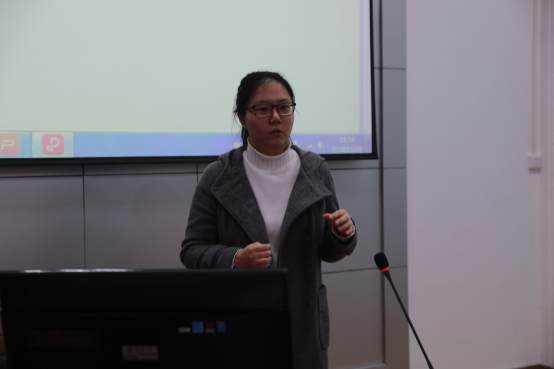
Researcher MIAO DanDan, CICTSMR
Speech topic: Research and practice of the "Double evaluation" in the sea area. MIAO introduced the research background of the "Double evaluation" in the sea area and indicated that "Double evaluation" refers to resource environment carrying capacity evaluation and space development suitability evaluation. Marine resources and environment environmental carrying capacity assessment is a comprehensive coverage assessment of the oceans under the jurisdiction of all coastal administrative regions, including four basic elements: Marine space resources, Marine fishery resources, Marine ecological and environmental resources and Marine island resources and environmental assessment. The suitability evaluation of marine space development mainly focuses on the strength of ocean development, the potential of ocean development and evaluates the suitability of marine space development. In the future, she said, better integration of land and sea assessments is needed to enrich and guide future research and practice.
(Rewritten by Xiong Shiyao)
(Edited by Fu Shanshan)
